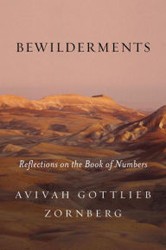Every so often a book comes along that clarifies something you’ve been thinking about but which has never presented a clear path to understanding. This is one of those happy occurrences. If you’ve been wondering how Judaism relates to the other great religions of the world, and how this religious pluralism affects contemporary Jews and their sense of identity, Jewish Theology and World Religions is the place to look.
The editors posit that one highly significant quality of modern Jewish life is that Jews interact today on an almost continual basis with non-Jews. This represents a major change in Jewish life from our more tradition-bound past, and the result of this religious pluralism can be confusing. Do we know how we think about the non-Jews’ beliefs? Do we understand their cultures and their world views? Do we have a clear idea of our own Jewish mission, and has exposure to other traditions changed it?
The two editors of this volume hold outstanding credentials. Alon Goshen-Gottstein is the founder and director of the Elijah Interfaith Institute and director of the Center for the Study of Rabbinic Thought at Beit Morasha, Jerusalem; Eugene Korn serves as the American director of the Center of Jewish-Christian Understanding and Cooperation in Efrat, and also as co-director of the Institute of Theological Inquiry. Together they have put together a roster of learned and articulate contributors, including well-known Jewish writers like Alan Brill, Ruth Langer, and Avi Sagi.
The book takes on difficult topics from a philosophical perspective. For example, it explicates Jewish views on a range of world religions and discusses the effects of Jewish pluralism in depth. Interfaith relations constitute a section of the book that is particularly well-written and insightful. This is also true of the thorough examination of rabbinic positions on Christianity and the studies of the Jewish views of Islam, Hinduism, and Buddhism.
At first glance, the topics may seem heavy, but the writing is solid and the ideas are accessible. High on the list is the concept that if we are to maintain our Jewish identity and continuity, we need to formulate a Jewish theology of world religions that will help us do so. This is particularly important for Jewish thinkers and educators who are concerned with ensuring that Judaism continues to make a meaningful contribution to the contemporary world. Index, notes on contributors.
Related Content: Winners and Finalists of the 2013 National Jewish Book Award
Linda F. Burghardt is a New York-based journalist and author who has contributed commentary, breaking news, and features to major newspapers across the U.S., in addition to having three non-fiction books published. She writes frequently on Jewish topics and is now serving as Scholar-in-Residence at the Holocaust Memorial & Tolerance Center of Nassau County.





